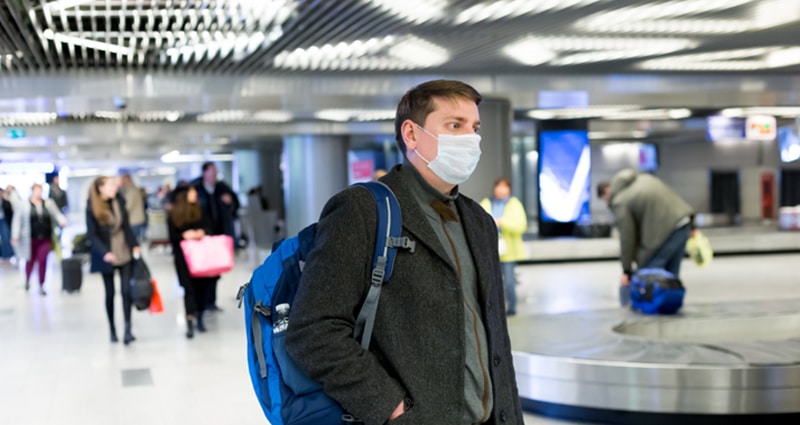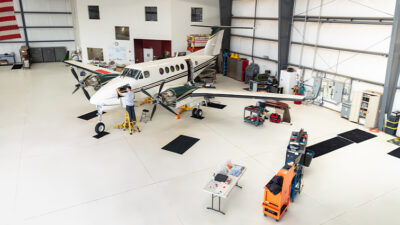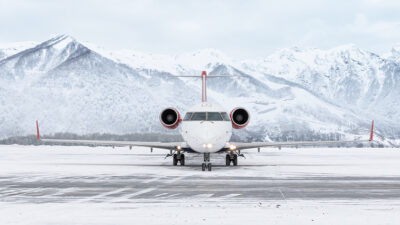Aviation Operations in the Year of the Coronavirus

During these uncertain times, employers are relying on their internal programs to assure employees and customers alike that operations can and will be conducted in a safe manner but with additional controls and preventative practices. Aviation operations can be conducted safely but must actively and effectively adapt to sound, science-based and enhanced hygiene guidance.
All U.S. aviation stakeholders, for example, should have what’s called an OSHA Hazard Communication (HazCom) program, where chemical hazards, primarily, are identified and preventative steps are put in place in accordance with the manufacturer of the chemical in question. Each chemical has a corresponding Safety Data Sheet (SDS), formally known as a Material Safety Data Sheet, MSDS, which describes the steps an employer intending to use a chemical must be put in place to protect its employees from the hazards that may result from the presence and/or use of chemicals. With the COVID-19 pandemic, OSHA has provided additional advisory guidance authorized under the OSHA Act’s General Duty Clause (Section 5(a)(1), which requires employers to provide their employees with a workplace free from recognized hazards likely to cause death or serious physical harm.
New Guidance from OSHA
OSHA recently expanded guidelines include a document called Guidance on Preparing Workplaces for COVID-19 OSHA 3990-03 2020. Employers should review this document and develop an amendment to their HazCom to include Hygiene & Infectious Disease Control procedures.
As part of this response, AvMaSSI is assisting operators in the U.S. and around the globe in refining their HazCom (and equivalent standards), as well as preparing hygiene and infectious disease control guidance documents.
Some questions to follow up on:
- Does your company have an up-to-date HazCom?
- Has the SDS Awareness training been completed for all employees and tenants?
- Has your company reviewed and incorporated the OSHA 3990-03 2020 recommendations and guidance into your HazCom program?
- Has your company instituted enhanced hygiene/infectious disease control practices?
- Has your company instituted enhanced facility sanitizing/disinfection practices?
- Has your company reviewed its Emergency Response Program (ERP)/Business Continuity Plan (BCP), and does it include the impact of a COVID-type event?
- Does your company’s ERP/BCP provide the guidance needed to work through different response levels and then return to normal operations?
While we hope for an expeditious resolution of the coronavirus pandemic and return to normalcy, this may be our new normal.
Contact AvMaSSI for additional guidance.
Javascript must be enabled to see email addresses. | 1-561-745-9787

AvMaSSI provides safety, security and operational integrity evaluations, consulting and auditing to airlines, airports, charter and corporate operators, OEMs, marine operators, seaports, governments, international agencies and financial institutions the world over. AvMaSSI provides IS-BAO and IS-BAH preparation and audit services and supports Global Aerospace and its SM4 and Vista Elite Programs with focused safety/SMS, security, regulatory compliance and IS-BAO auditing services. AvMaSSI is a proud member of the Global Aerospace SM4 partnership program.
http://www.Avmassi.com
© 2025 Aviation & Marine Safety Solutions International. All Rights Reserved.
Next ArticleRelated Posts

Aviation Safety—Grounded!
When we talk about aviation safety, our attention often goes to aircraft operational concerns. They are important, but by no means do they represent all the risks in a flight department. So, what’s “the rest of the story”?

Mitigating Risk – Amidst the Chaos
There have been more high-profile aviation accidents in the last few months than in the last few decades. As we mourn those we have lost and aim not to make assumptions before final reports are completed, we must focus, personally and professionally, on assessing the risk of something similar happening within our aviation enterprises.

